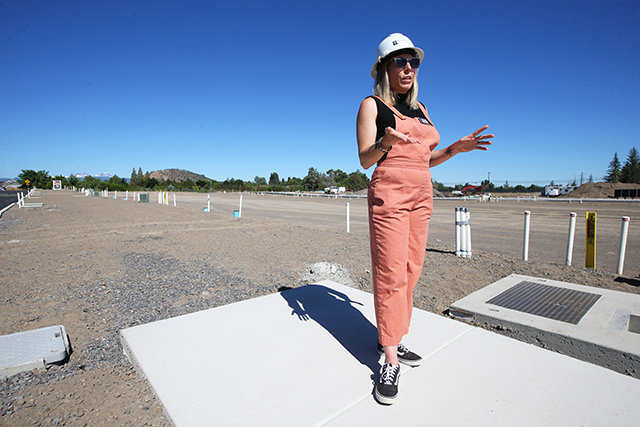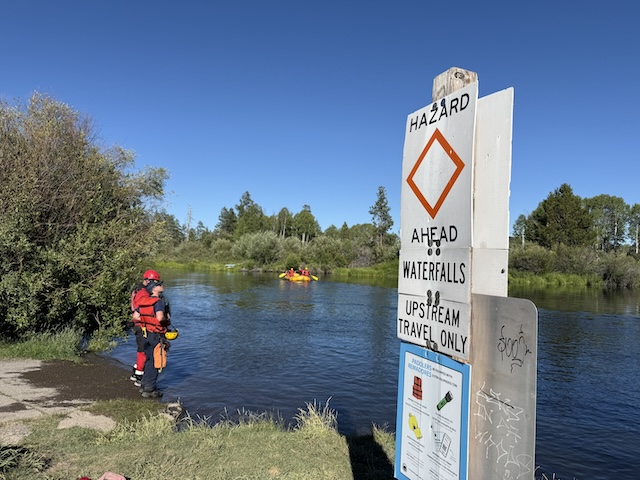Killers’ families struggle with shame, silence and fear
Published 4:00 am Sunday, February 5, 2012
Editor’s note: This is an excerpt of an article in today’s New York Times. Read the full version at nytimes.com.
PUEBLO, Colo. — On a summer night not long ago, Maureen White sat alone in her living room staring at a DVD she had avoided watching for years.
Trending
On the screen was her older brother, Richard Paul White, the person who taught her how to ride a bike and who tried to protect her from their mother’s abusive boyfriend when they were children. He was confessing to murdering six people.
Toward the end of the videotaped police interrogation, Maureen White reached for a razor blade and began to slice her left leg.
“I felt such rage and anger and so many emotions I did not know what to do,” said White, 34. When she was done, she said, she needed dozens of stitches and staples.
Richard Paul White, 39, will spend the rest of his life in prison for three of the murders, to which he pleaded guilty in 2004. Maureen White, whose life has always been fragile, is still struggling.
Like relatives of other violent criminals, she has found herself ill prepared to deal with the complex set of emotions and circumstances that further unhinged her life after her brother’s crimes. Under treatment for anxiety and depression, among other conditions, she has nightmares about serial killers and snipers. She is startled by loud noises and gets nervous around strangers.
And for more than a year after viewing the video, she continued to cut herself — something she had never done before.
Trending
“By cutting myself,” she said, “I wanted people to see on the outside how ugly and bad I feel on the inside.”
In a society where headlines of violence are almost commonplace, the families of the perpetrators are often unknown and largely unheard from. But now some relatives have decided to share their stories. In interviews with members of numerous families of varying social and economic status, siblings, parents, partners, cousins and children of convicted killers recounted the hardships they have experienced in the years since their relatives’ crimes.
In the flash of a horrifying moment, they said, their lives had become a vortex of shame, anger and guilt. Most said they were overwhelmed by the blame and ostracism they had received for crimes they had no part in.
Yet many of these families stay in close touch with their imprisoned relatives. Nat Berkowitz, the father of David Berkowitz, the New York City serial killer known as the Son of Sam, said he regularly talked to his son on the phone more than 34 years after his arrest. “I am 101, and it still goes on,” he said.
A cousin’s livelihood
Some of the cases are very public or national in nature. On Nov. 5, 2009, 13 people were killed and 32 others wounded at Fort Hood, Texas. By the next day, the repercussions had reached a small law office in Fairfax, Va. The head of the firm, Nader Hasan, is a cousin of Maj. Nidal Malik Hasan, the man accused of carrying out the rampage, and the two had grown up together outside Washington.
“Our phones went completely quiet, dead,” Hasan, 42, a criminal defense lawyer, said at a large oak table in his impeccably neat office, where a painting of the U.S. Capitol hangs above a fireplace. “It was devastating since we relied on referrals. I lost dozens of prospective clients, and it still happens.”
Internet accounts reported that the two men were relatives. An interview Hasan gave to Fox News soon after the shooting in which he said his cousin “was a good American” created an impression to some that he was condoning what his cousin was accused of doing.
The discomfort crept into his personal life. When he returned to a local school where he had been a volunteer assistant wrestling coach since 2000, he said, he was asked to leave because of his connection to the Fort Hood violence. He packed up.
By March 2010, Hasan’s situation was improving. Referrals were on the rise, and his wife was pregnant with their first child. But he was agonizing about staying silent about religious extremism. With a lawyer friend, Kendrick Macdowell, he formed the Nawal Foundation, named after Hasan’s mother, and set up a website to encourage moderate U.S. Muslims to denounce violence in the name of Islam. It was not an easy thing to do.
“There was a tremendous amount of family pressure on him to do nothing public, to not remind the world we are related to the Fort Hood shooter,” Macdowell said.
Late last year, Kerry Cahill, a 29-year-old woman who lost her father in the shooting, contacted Hasan to discuss the foundation, whose message she liked. They met at his home for several emotional hours. She said that Hasan was apologetic and that she sensed he was burdened. She recently accepted his invitation to sit on the foundation’s board.
“We are both angry at the same thing,” she said.
A sister’s guilt
In 2003, life looked promising for Danyall White, another sister of Richard Paul White. After a difficult childhood, everything seemed to be falling into place. She was studying to be a court reporter at a school outside Denver and had a job answering phones for a pay TV provider.
For about a year, though, her brother had been telling her that he had killed women throughout Colorado. But White, then 30, often “said off-the-wall things,” she recalled. She dismissed the morbid claims as fantasies. Eventually, she called the police.
Now, Danyall White is grappling with her own guilt. “It wasn’t just the guilt of my brother being behind bars, but the guilt of watching everybody’s life falling apart because of what I did, the phone call that I made,” said White, 37. “Some of my family shunned me, and it ate away at me.”
Soon enough, White said, she found “a friend and confidant” who never left her side: alcohol. After the arrest of her brother, White abandoned her studies and was dismissed from her job because, she said, the company told her it could not assure her safety against colleagues’ threats and insults.
In 2010, White entered an alcohol rehabilitation program and says she had been sober for 20 months before briefly relapsing recently. “I told no one in rehab who I was, that I was R.P.’s sister,” she said. “In sobriety, I have realized that I was taking responsibility for someone else’s actions. A lot of the guilt has subsided.”








